Doggette Determination
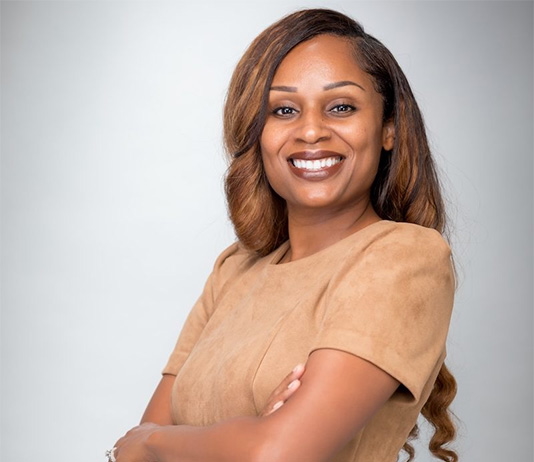

In characteristically thoughtful fashion, Erin Doggette, PhD, Stetson’s director of the Office of Diversity and Inclusion, crystallized her current motivation: “I just try to think of ways to make people belong, make them feel like, ‘Okay, this place is for me.’”
Those few simple words are turning out to be real and resonate, as the setting that surrounds her on the DeLand campus continues to ascend with vibrant new life, seemingly by the day since Doggette arrived last March.
Yet, the journey to that sense of place and situation was anything but straightforward and easy.
A decade ago, Doggette already was a success in education. Actually, she was a portrait of what could be for all, even those who must overcome lines blurred by inequity, prejudice and other circumstantial difficulties.
In brief, Doggette’s youth was spent in Omaha, Nebraska, before a move south as a teenager brought her to Tennessee, where she first encountered racism. She and her four siblings were raised mostly by their mother, who had to forego her own dreams for the sake of family.
Through the years, Doggette proved to the aptly named, pushing forward with dogged determination to not only overcome, but also to inspire others on their own journey. She was a first-generation graduate of the University of Alabama – Huntsville, but not before coming this close to landing on academic probation because she prioritized full-time employment. She then went on to receive a Specialist in Education degree at La Sierra University in California, and subsequently earn a doctorate in Higher Education Administration and Leadership from Andrews University in Michigan.
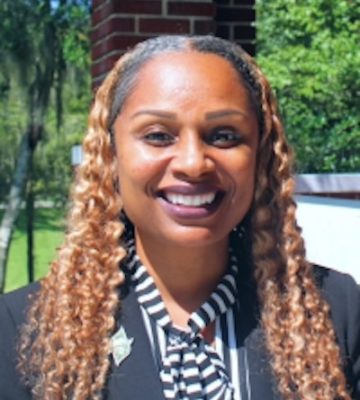
All along the way, Doggette found new directions, particularly one pivotal fork in the road that now has her shining at Stetson. While pursuing her EdS and working at a school, she took study of a Black student, older than most others, who “kept failing” socially and academically, she described. Worse, he was troublesome for his other teachers. Doggette wanted to know why.
The student agreed to her research project and, it turned out, he was homeless, living in a car with his family. He spoke “Ebonics” (culturally unique word-sounding) because he didn’t know differently. Fearing personal interaction, he wore headphones just to keep others away. Routinely, he was insulted, criticized and minimized into either withdrawal or wayward behavior. Those circumstances, meanwhile, had gone unrecognized.
‘There Needs to Be a Voice’
“I wanted to understand how someone in his situation was able to make it in life, and was it possible to go beyond that situation to actually living a good life, getting a job, etc., if something didn’t change,” Doggette said. “And so, working with that student is when I said, ‘Okay, I want to do DEI work. There needs to be a voice. There’s got to be a way I can help students in the future. That ‘belonging’ piece was missing. … And race and ethnicity are only part of the equation. These students don’t have any way to learn how to fit into American society. Who’s there for them?”
Doggette shifted from education to equity, along with diversity and inclusion.
With that as the backdrop, Doggette hit the ground running at Stetson.
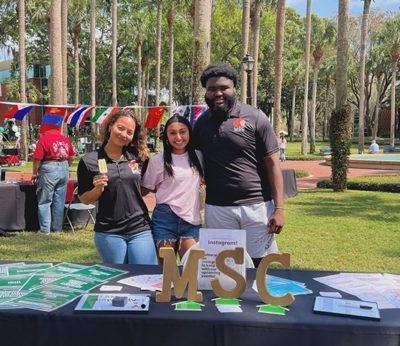
For the record, Stetson’s Office of Diversity and Inclusion “cultivates a welcoming and inclusive campus community where a Stetson education — extraordinary, accessible, personalized and intellectually vibrant — becomes a reality for students from all social, ethnic, geographic and economic backgrounds.” That description, however, doesn’t wholly encompass the mission. For the true measure, one must witness the core activities across ODI’s chief organizations: the Multicultural Student Council, the WISE Program for first-generation students who identify as belonging to a historically minority or underrepresented population, and the Cross-Cultural Center. One example: This fall, Stetson’s WISE Program offered its first-ever First Year Seminar, a class solely for first-gen students.
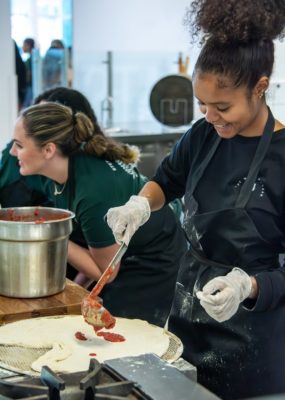
ODI’s recently adopted tagline is “Bridging Differences. Building Belonging.” The emphasis is on belonging — a sharing of “common ground no matter what their race, ethnicity, any of that,” Doggette explained. “They share that thing in common. … We want everyone to feel they can find their people here at Stetson. And for me, that’s what belonging is.”
With belonging, contributing can follow, Doggette added. Her words: “Another piece of belonging is where now it’s not just ‘take, take, take.’ But you’re contributing, and you care more. For me, if I’m able to add a little elbow grease, sweat to something, it matters more to me. There’s more meaning to it. And so we’re trying to offer that as well for students.”
For example, last May students from Stetson’s Asian Pacific American Coalition promoted cultural awareness and knowledge through special events they organized during Asian-American and Pacific Islander Heritage Month. They contributed.
Across the board, programming has been enhanced, such as new leadership training for student leaders of the Multicultural Student Council. Doggette believes training the leaders will trickle down to others over time.
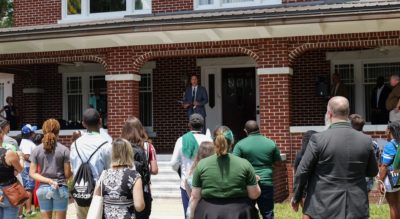
Impacts are taking hold. During Stetson Homecoming 2024 at a Multicultural Alumni reception, past students networked with current students, resulting in opportunities to share. The celebration of diverse community was a signature moment.
Not surprisingly, during the fall semester there have been nearly 200 new students each week entering the doors of the Cross-Cultural Center.
The sense of belonging is measurable and palpable.
“There’s a multiplier effect because those students, as they advance, they’re touching other students,” Doggette concluded with a smile.
-Michael Candelaria
